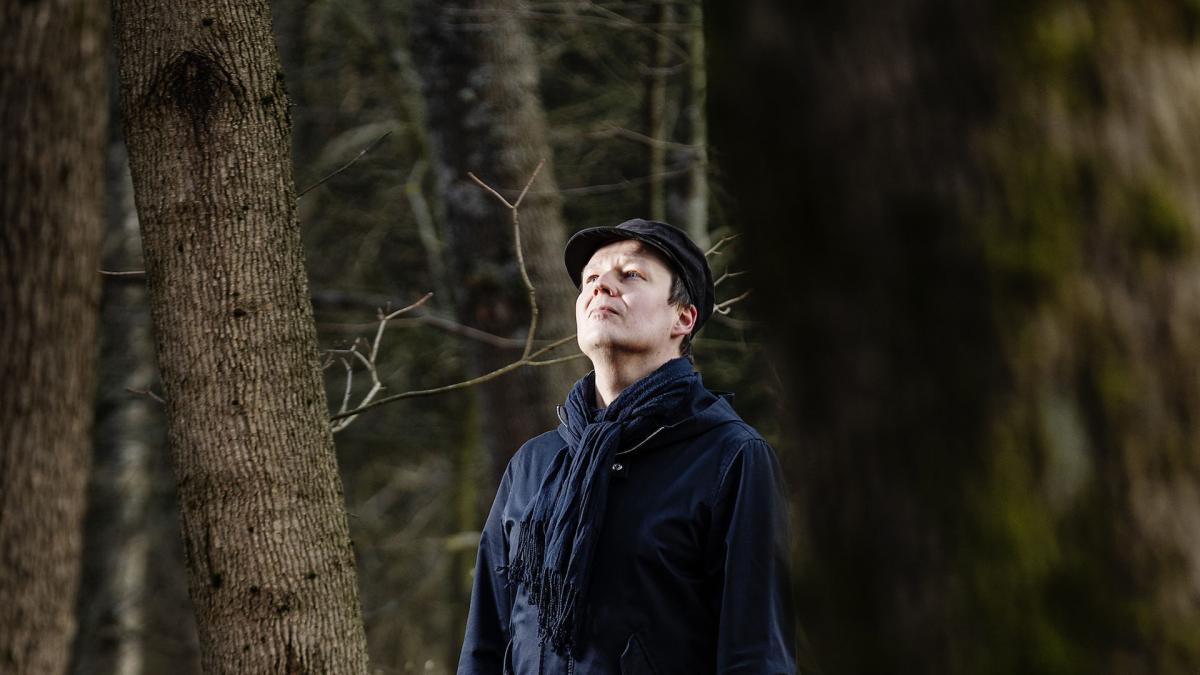Get to know the artist: Ville Raasakka takes a stand on Finnish logging with his composition
“The Harvest” puts in music the destruction made by forestry.

Composer Ville Raasakka is preparing his doctorate, where the main themes are wood, crude oil and coal. The degree will consist of 12 compositions, each dealing with the relationship between man and nature in some way. The third and last composition in the series is The Harvest, which takes a stand on forest felling in Finland. The work will have its premiere at the Vienna Concert Hall on March 18 as an international collaboration between the NYKY Ensemble of the Sibelius Academy and the Klangforum Wien, which is one of the absolute World top of contemporary music ensembles.
The Harvest is based on Raasakka’s fieldwork recordings of the work of harvesters, which he has orchestrated for chamber orchestra instruments.
“The piece is mechanical, quite loud, maybe even barren. As a contrast, I have also written more singing tones into the composition – it is somehow a piece of extremes. The hum of the hydraulics, the buzzing of the saws and the beeping of the control panels are the key sound elements of this composition”, Raasakka describes.
Concerns about the loss of biodiversity led Raasakka to take a stand on deforestation as a topic and comment on it through music. The piece, composed for a small chamber orchestra and 16 musicians, was first worked on in October 2021, when Klangforum Wien visited Helsinki and collaborated with NYKY Ensemble.
“It was hugely rewarding. As a composer, I got to comment on quite a few things, instrumentation among other things. I got to listen to how these musicians interpret the piece. I also got to ask their opinion on how to write different parts. The interaction worked very well.”
According to Raasakka, there are composers in Finland who bring up environmental issues in their production. However, he has his own approach to this painful theme.
“I’m not bringing my fists forward with the subject, even though it’s important to me. I want to provide food for thought – for example, an incentive to look for more information. In a concert situation, the opportunities to discuss these themes with the audience are in any case limited. ”
No proclamation but a subtle discussion
Raasakka’s interest in bringing up ecological themes in his compositions dates back in his childhood, to the heritage of her mother being a biology teacher. He anticipates that that ecological themes will continue to be present in his works also in the future.
“I would like to see that even more and more artists who have focused on research and social topics could be included in the discussion. The number of people attending concerts or performing arts performances is large, so in that sense the opportunities for art to influence the debate are vast.”
In his doctoral degree Raasakka plans to study, from the composer’s point of view, how field recordings can be brought into a concert space and how they can serve as a basis for compositions. Some of these recordings Raasakka himself has been made in the field, some come from the archives.
“I want to take a look at certain ecological cases and how the field tapes could work when the tape as such is not part of the composition but serves as the basis for it and its orchestration. How then can the original soundscape be brought into concert space? I also want to activate the audience by arousing thoughts and interest in ecological issues – how can this be done subtly without causing the opposite reaction? ”
Raasakka gives praise to the University of the Arts Helsinki for being a good environment to do a doctorate; for example, there are many supportive courses for the ecological topic at the Academy of Fine Arts.
“Also at the Sibelius Academy, the reception on the ecological topic has been very positive, and I have found a good community to do this work.”
Sibelius Academy’s contemporary music ensemble NYKY Ensemble will premiere Ville Raasakka’s composition The Harvest at the Vienna Concert Hall on March 16, 2022 at 6 pm in collaboration with Klangforum Wien. The cooperation is part of the Sibelius Academy’s International Visitor program. It complements the education of the Sibelius Academy and invites leading artists from around the world in their respective fields to teach. The visitors work with Sibelius Academy students and teachers on a periodic basis, usually for periods of one or two years. The program has been supported by the Jane and Aatos Erko Foundation and the Jenny and Antti Wihuri Foundation.